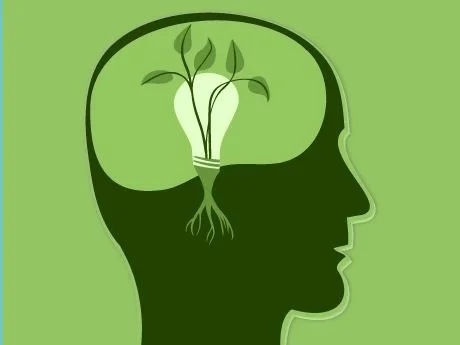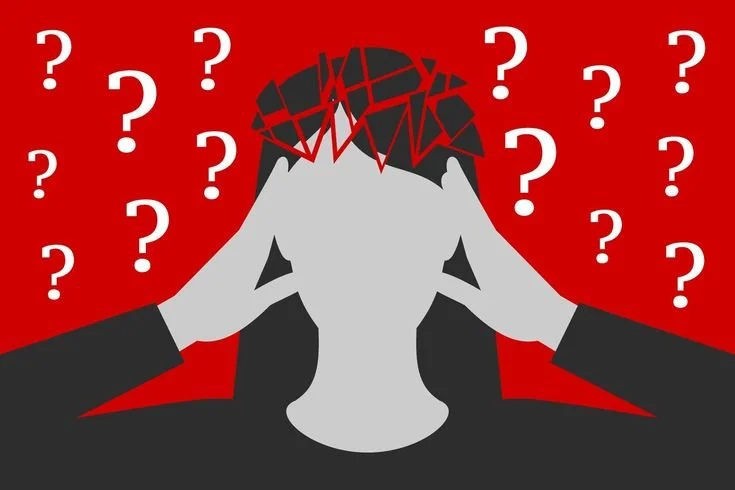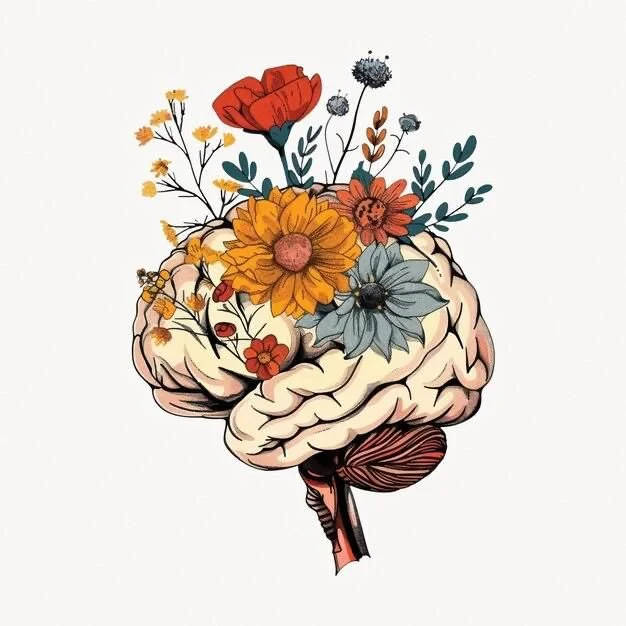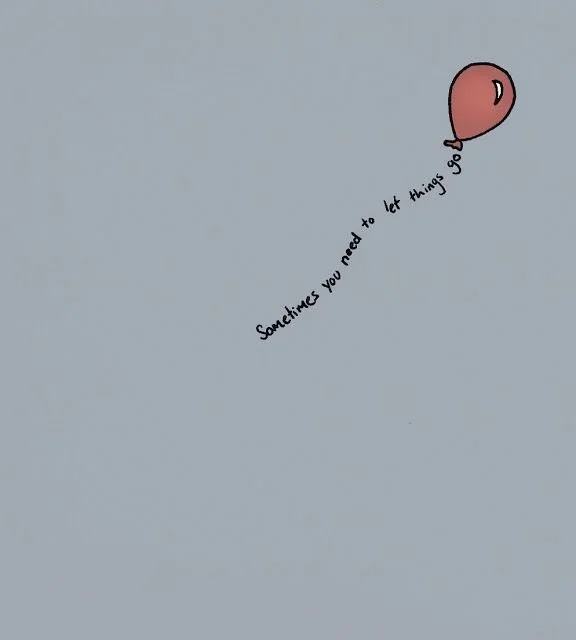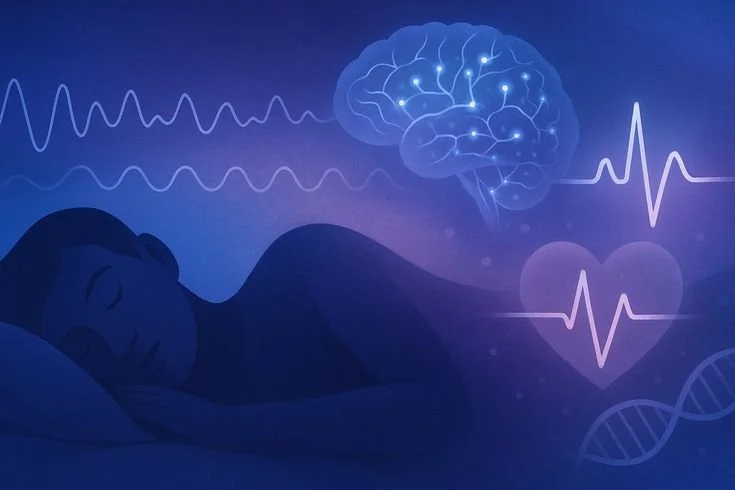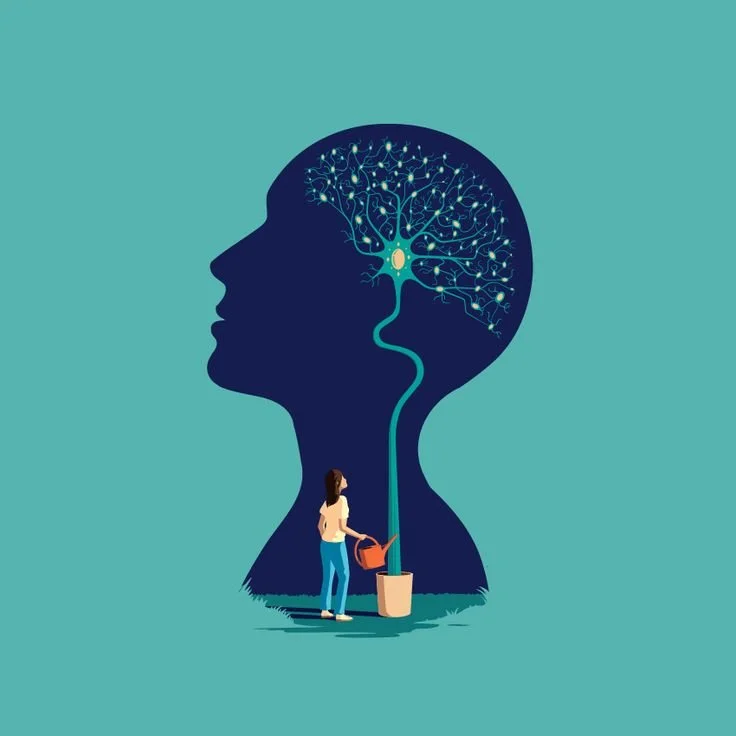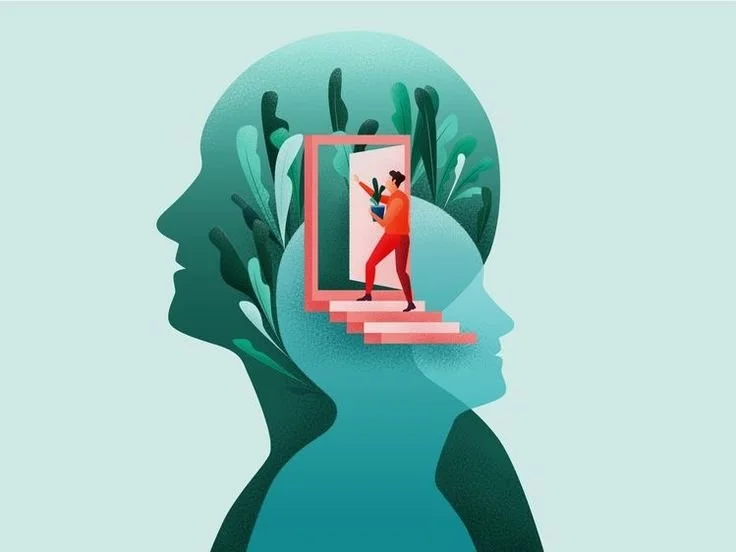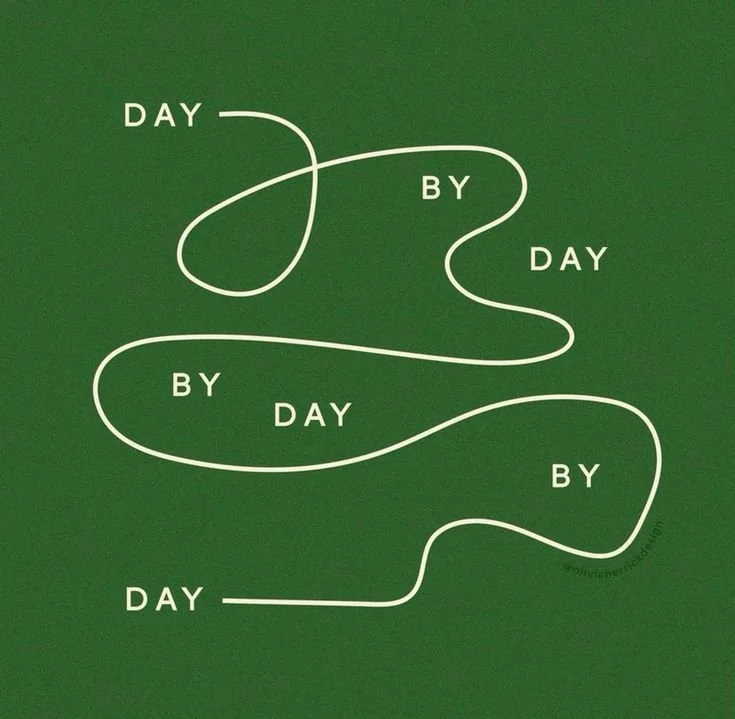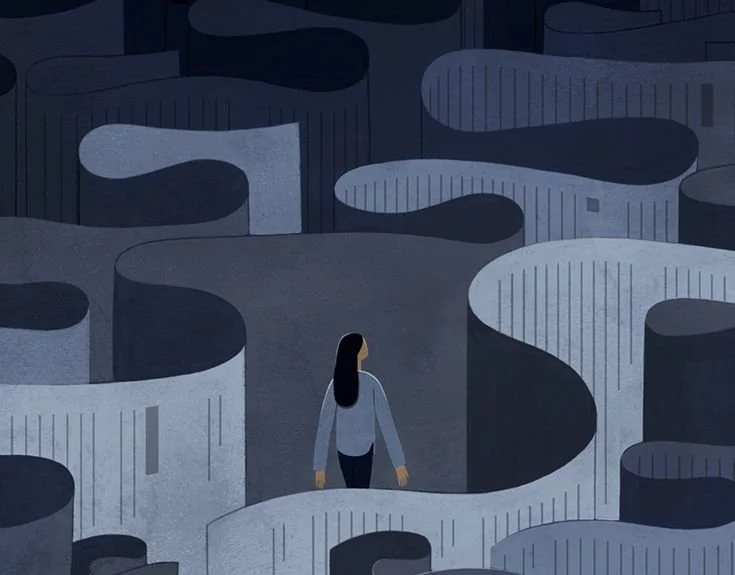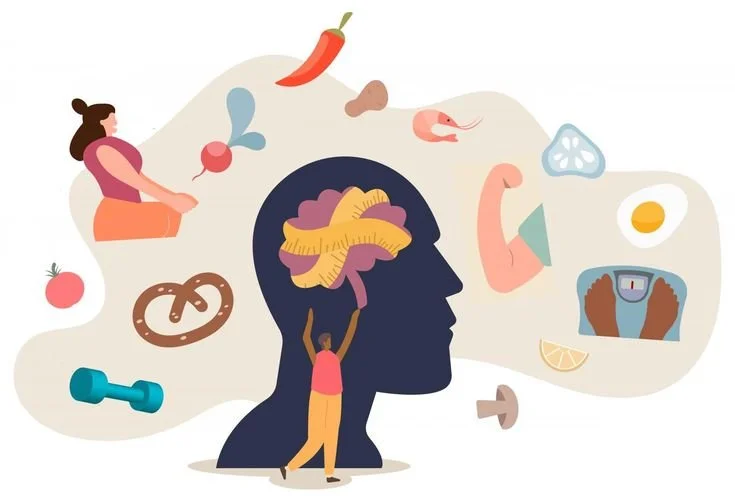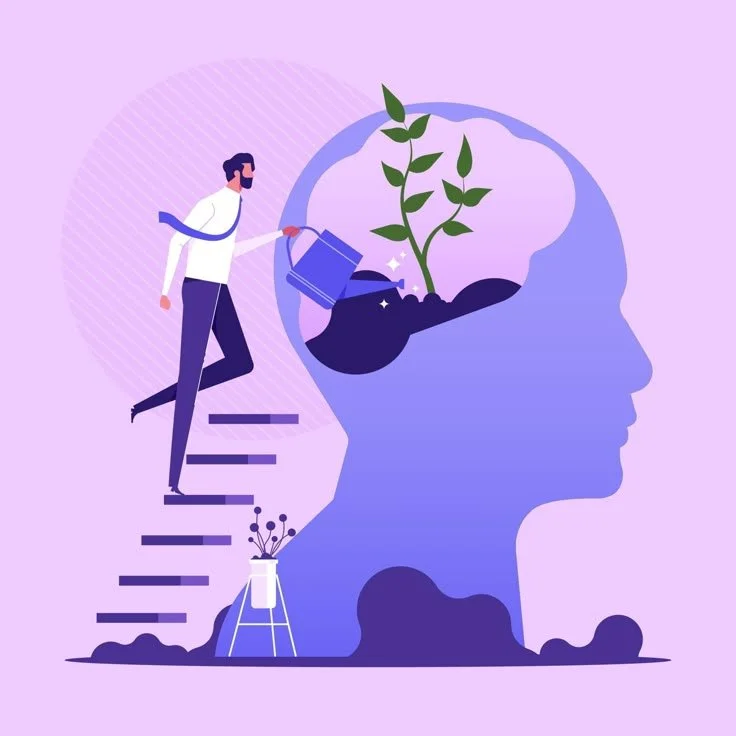The Power of a Growth Mindset, And How to Truly Embrace Challenges
A growth mindset doesn’t erase fear or make challenges easy. It simply shifts the meaning you give them.
Every obstacle becomes a classroom. Every mistake becomes data.
And every challenge becomes a stepping stone, not a stumbling block.
If you can hold onto this truth - that you are always a work in progress, and that progress is worth the discomfort - then you’ll find that the very moments that once scared you are the ones that shape you most.
Fear: The Quiet Force That Shapes Us, and How to Live Beyond It
We like to think of fear as something we feel only in moments of danger. But often, and silently, fear lives in the everyday - in our relationships, our work, our hopes for the future. It’s in the hesitation before we say how we really feel. It’s in the decision we avoid making because we’re afraid of what it might set in motion. It’s in the way we hold on too tightly to people or roles because we can’t imagine life without them.
Decision Fatigue: Why We Struggle to Make Choices and How to Cope
Every day, we’re faced with decisions - what to wear, what to eat, when to respond, how to phrase that message, whether to say yes, whether to say no.
Some decisions are small and automatic.
Others feel heavy, layered, and exhausting.
By mid-day (or sometimes, mid-morning), we may find ourselves scrolling mindlessly, putting things off, or feeling inexplicably irritable - unable to choose what once seemed simple.
This isn't laziness or indecision. It’s something very real: decision fatigue.
The Words We Whisper: How Self-Talk Shapes Our Inner World
We all have an inner voice - the quiet narrator that comments on our day, our choices, our mistakes, and our worth.
Sometimes it's gentle. Supportive. A steady hand on our back.
But other times, it’s harsh, it’s relentless. A voice that doesn’t sound like ours, yet speaks with so much control and authority.
This is self-talk - the way we speak to ourselves when no one else is listening. And while it may seem like background noise, it quietly defines the landscape of our inner world.
“Not Good Enough”: The Quiet Belief That Dims Even the Brightest Light
The world doesn’t need a more polished, perfect, or “proven” version of you - it needs a realer one.
One that knows growth isn’t the opposite of enough-ness - it’s born from it.
So the next time your mind says, “I’m not good enough,”
Pause.
Breathe.
And remember: That voice is loud, but it isn’t the truth.
You are already becoming, just by being here.
The Art of Forgiveness: Letting Go for Your Mental Health
Forgiveness is not a final destination, it's a quiet, powerful practice.
It’s how we reclaim parts of ourselves that were shaped by pain.
You don't have to do it all at once.
You don't have to feel ready.
You just have to know: it’s okay to want peace more than you want closure.
Letting go doesn't mean it didn't matter.
It means you matter enough to stop holding on.
Impostor Syndrome: Why We Doubt Ourselves and How to Overcome It
Impostor Syndrome isn’t a mental illness. It’s a pattern of self-doubt that makes people feel like frauds, even when they’re successful, competent, and qualified. They may attribute achievements to luck, timing, or others’ support, anything but their own effort and capability.
If you’ve ever felt like an impostor, chances are you’re not one. Real impostors don’t question themselves, they overestimate their competence. The very fact that you care, reflect, and worry means you’re conscious, not counterfeit.
The Role of Sleep in Mental Health: A Psychological Perspective
We often think of sleep as the last thing on the list - the thing we’ll catch up on over the weekend, or sacrifice when life gets busy. But sleep is not a luxury; it’s a biological necessity, a psychological anchor, and often, the missing link in our emotional wellbeing. Sleep is one of the most vital, yet most overlooked, foundations of emotional wellbeing. While we often speak of anxiety, depression, trauma, or burnout, what quietly threads through all of them is the quality of our rest.
The Psychology of Money: How Our Beliefs Shape Financial Decisions
What we call “money issues” are really unspoken emotional truths.
We think money is math.
Add, subtract. Earn, save.
Work hard, spend smart. Stick to a budget. Simple.
But for most of us, it’s not that simple.
Not because we’re irresponsible.
Not because we “lack discipline.”
But because money is emotional.
It carries stories from our childhood.
Memories of fights behind closed doors.
Guilt around asking. Fear around receiving.
Relief that never quite lasts.
Money, for many of us, is not logic, it’s identity.
The Science of Habits: How to Break Bad Ones and Build Good Ones
You don’t need more willpower. You need to understand your wiring.
Most people don’t struggle with habits because they’re lazy.
They struggle because they’ve been trying to fight their brain, instead of working with it.
The Healing No One Sees: Private Victories That Deserve to Be Named
Not all progress is loud. Some healing is quiet, sacred, and only you know it happened.
There are moments in your healing journey that no one notices.
No one claps.
No one congratulates you.
No one even knows they happened.
But you do.
And those moments matter—more than anyone could possibly understand.
Healing Doesn’t Always Look Like Progress: The Hidden Parts of Getting Better
Some days in healing, you bloom. Other days, you just breathe. And both matter.
We often imagine healing as a straight path — marked by visible milestones, clear transformations, and linear growth. We expect ourselves to feel “better” every week, to keep moving forward, to have something tangible to show for all the effort we’re putting in.
But real healing?
It’s messy.
It’s slow.
And more often than not, it doesn’t look like progress at all.
That Restless Feeling You Can’t Quite Name? It Might Be FOMO.
FOMO isn’t evidence that your life is lacking.
It’s evidence that you’ve temporarily lost touch with your own center.
And the antidote? It’s not chasing more. It’s coming back to you.
To what feels right in your body.
To what gives your life meaning.
To what’s unfolding quietly but beautifully in the life you’re already living.
The Role of Gratitude in Mental Health: A Gentle Shift That Changes Everything
When the World Feels Heavy, Gratitude Offers Us a Hand
Some days, it’s easy to feel thankful. The light hits your face just right, someone remembers your favourite coffee order, or you catch yourself smiling without reason.
And then there are the other days.
The heavy ones. When everything feels a little too much, and nothing feels enough. When you’re stretched thin, emotionally drained, or quietly wondering when life will finally feel lighter.
It’s in these quiet, aching moments that gratitude isn’t just a feel-good habit — it becomes a lifeline.
Making Peace with the Unknown: How to Live, Breathe, and Grow Through Uncertainty
We spend so much of our lives trying to plan, predict, and protect — but life rarely follows the script. Uncertainty shakes our sense of control and safety, leaving us anxious and untethered. But what if the goal isn’t to eliminate the unknown, but to become someone who can stand calmly within it? This blog explores the psychology behind why uncertainty affects us so deeply — and how we can begin to navigate it with greater clarity, courage, and compassion.
The Psychology of Addiction: Understanding the Mind’s Cravings
At its core, addiction is not about weakness. It’s about the brain learning that a certain substance, behavior, or experience provides intense relief, pleasure, or distraction. Whether it’s alcohol, social media, food, nicotine, gambling, or even work — the addictive loop starts when the brain begins to associate that “thing” with comfort, escape, or control in an otherwise unpredictable world.
Many people don’t realize that addiction is not just about “getting high” — it’s about feeling less pain, less emptiness, less chaos. When we feel anxious, numb, rejected, unsafe, or overwhelmed, the brain craves something to soothe us quickly. Over time, this shortcut becomes a trap.
If you or someone you love is struggling with addiction, know this — you are not weak, and you are not alone. The brain is not the enemy; it’s doing its best to protect you. But it may be using outdated strategies.
With the right support, awareness, and willingness to face the pain underneath the cravings, recovery becomes more than possible. It becomes a radical act of self-compassion.
Grief Lives Where Love Once Danced
A gentle letter to everyone who has lost someone they deeply love.
Grief is not a moment.
It is not something you "get over" or heal from on a schedule.
It is not a task, a weakness, or a failure.
Grief is a language your heart speaks when it loses something it cannot bear to live without.
It is the shadow that follows love, and a testimony to how deeply you have loved — and how deeply you still do.
Attachment Styles in Adult Relationships: What They Mean and How They Affect Us
Have you ever found yourself pulling away just as things start to feel close? Or, on the other hand, clinging a little too tightly for fear of being left behind? Maybe you’ve wondered why certain dynamics repeat across different relationships — why you keep choosing unavailable partners, or why intimacy sometimes feels suffocating.
The answer often lies in something quietly powerful: your attachment style.
Rooted in early life experiences, your attachment style is the lens through which you interpret closeness, vulnerability, and connection. It shapes how you relate to partners, friends, even yourself. And unless it’s brought into awareness, it can quietly script your relationship patterns on loop.
Let’s unpack what these styles are — and how they show up in adult relationships.
The Connection Between Food and Mood: More than Just Hunger.
“More Than Just Hunger” explores the intricate connection between what we eat and how we feel — emotionally, mentally, and psychologically. Drawing from research in neuroscience and psychology, this blog unpacks the hidden impact of food on mood, stress, and emotional regulation. From the blood sugar rollercoaster to neurotransmitter production, gut-brain communication, and the emotional roots of eating, it offers a compassionate and science-backed look into why we often turn to food for comfort, and how we can build healthier, more supportive habits. Whether you're navigating emotional eating, recovering from disordered patterns, or simply curious about how your meals shape your mind, this piece offers practical strategies to nourish both your body and your emotional well-being.
Are Your Thoughts Playing Tricks on You? Let’s Talk About Cognitive Distortions.
Our minds can be drama queens sometimes. We all have automatic thoughts — quick, reflex-like reactions to what’s happening around us. Most of the time, we don’t even notice them. But these thoughts influence how we feel, how we behave, and ultimately, how we see ourselves and the world. And when they lean negative for too long, they can quietly shape a distorted version of reality.


